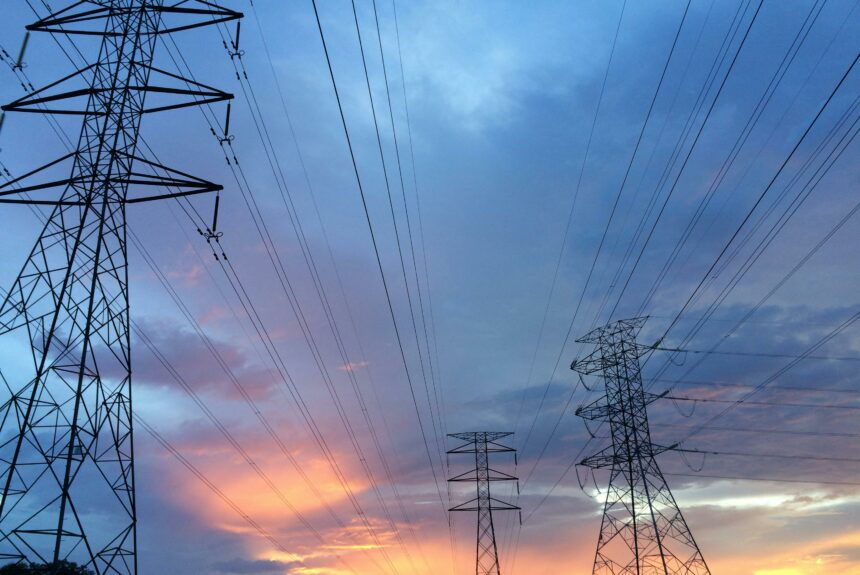A revolution in the West’s electric power grid is on the horizon, offering consumers potential reliability and economic benefits. However, those benefits will only be realized if we prevent special interests from hijacking the process.
Industry leaders and state policymakers are spearheading efforts to establish a Regional Transmission Organization (RTO) to oversee the power grid and institute a wholesale power market in the West. While this may sound like insider baseball, the potential benefits for consumers are too significant to ignore.
At its core, an RTO is a real-time energy market integrated with electric transmission grid operations. It functions like an air traffic control system for electricity on the grid, coordinating power flows from producers to consumers in ways that minimize costs and maintain reliability. RTOs don’t own power plants or transmission lines; they direct “traffic” to keep power flowing smoothly.
Western utilities have been buying and selling power with each other for decades, but current markets are fragmented and don’t use the transmission grid effectively. The West has more than 30 separate transmission operators a power trader could have to deal with. An RTO would streamline this to just one or two, dramatically improving market efficiency.
Some worry that joining an RTO means states ceding control to a federal authority. However, states retain their regulatory authority over electric utilities, including in areas like resource planning and retail rates. An RTO provides a larger, more efficient energy market platform within which states remain able to pursue their policy goals.
The expected benefits are substantial. A recent study estimated that a single West-wide RTO could save consumers $2 billion annually by 2030. Even if political differences lead to two separate RTOs, the savings could still reach $1.43 billion per year. These aren’t just numbers on a page- they represent real savings that could flow through to your electricity bill.
But it’s not just about saving money. RTOs can also enhance reliability. An RTO will have a broader view of the grid, allowing it to respond more effectively to unexpected events like extreme weather or sudden plant outages. During the 2021 Winter Storm Uri, for instance, areas connected to large RTOs fared better than isolated grids. Competition can induce generator owners to boost performance, meaning a greater capacity to respond to unexpected conditions.
The potential transformation RTOs brings is reminiscent of other successful market-based reforms, such as airline or telecommunications deregulation. These changes unleashed innovation, improved service quality, and ultimately benefited consumers. Boosting wholesale electric competition in the West will inject dynamism into an industry long dominated by slow-moving regulated monopolies.
>>>READ: Military Innovation Could Revolutionize Generators and Accelerate Energy Innovation
The West is not starting from scratch. The region already has energy imbalance markets with demonstrated benefits. Regional efforts are also underway to promote cooperation for resource adequacy and transmission expansion. An RTO would build on these foundations and bring even greater efficiencies to the table.
But here is why consumers need clear-headed advocates involved. Environmental activists and progressive state governments may try to rig the rules the RTO operates on to favor their interests at the expense of everyone else. Entrenched utility monopolies will likely lobby to maintain their protected status, stifling competition and innovation that an open market could bring. Another threat to consumer interests comes from anti-renewable activists so opposed to the growth of solar and wind energy that they’d rather stick with existing utilities and government-mandated monopoly control.
Change can be daunting, especially in an industry as crucial as electricity. But the evidence is clear: RTOs have a track record of lowering costs, improving reliability, and supporting environmental goals in other parts of the country. It’s time for the West to embrace this opportunity.
The path to an RTO won’t be without challenges, but the potential rewards for consumers and the region is a journey worth taking. It’s crucial that a wider range of policymakers and citizens get engaged in this process to ensure that consumers secure the benefits of this transformation.
Michael Giberson is a senior fellow in energy policy at the R Street Institute who specializes in the economics of electric power, energy industry regulation, and energy markets.
Todd Myers is vice president for research for the Washington Policy Center where he focuses on environmental issues, including climate policy, forest health, and salmon recovery.
The views and opinions expressed are those of the author’s and do not necessarily reflect the official policy or position of C3.
